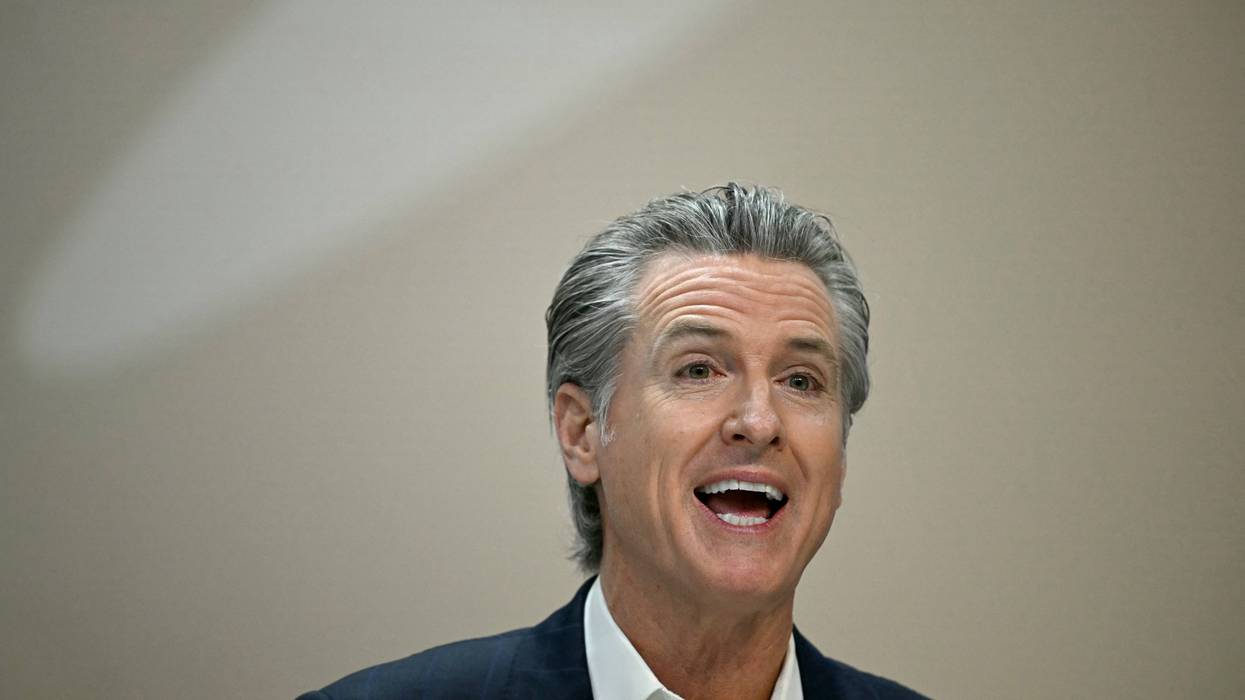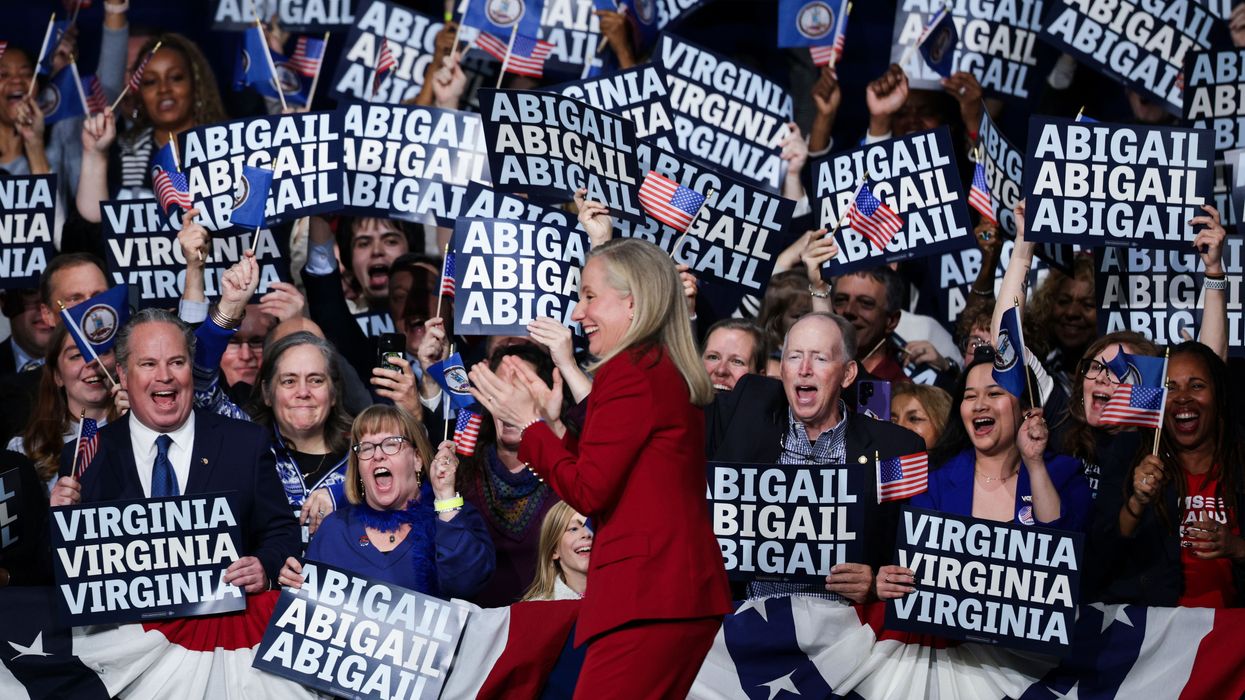Virginia Democrats Pass New Political Map to Combat Trump—But Court Battles Continue
"Virginia has to fight back," said state House Speaker Don Scott. "We can't stand by and do nothing but to do everything in our power to level the playing field."
Democrats in the Virginia General Assembly on Friday passed a new potential congressional map and a later primary date—but it came after a setback in court for a pending referendum in which voters would decide whether to redistrict to combat a national GOP gerrymandering effort launched last year by Republican President Donald Trump.
After advancing in a 21-18 Virginia Senate vote on Thursday, HB29 was approved by the House of Delegates 59-35, with five Democrats not voting. The bill still needs a signature from Democratic Gov. Abigail Spanberger, but VPM reported that House Speaker Don Scott (D-80) expects her to sign it as soon as Saturday, or by Monday at the latest.
"Virginia has to fight back," Scott said, accusing Trump of trying to rig the November midterm elections for the Republican Party. "We can't stand by and do nothing but to do everything in our power to level the playing field."
Spanberger—who is set to deliver Democrats' response to Trump's State of the Union speech next week—similarly said when she approved the referendum that "Virginia has the opportunity and responsibility to be responsive in the face of efforts across the country to change maps."
Trump has convinced Republicans in Texas, North Carolina, and Missouri to redraw their congressional maps in a bid to hold on to the GOP's dwindling majority in the US House of Representatives. That led to various court battles, a new voter-approved map in California crafted to benefit Democrats, and the ongoing fight for a similar one in Virginia.
If Virginia voters support Democrats' constitutional amendment to temporarily redistrict, the new map would give the party an advantage in 10 of the state's 11 congressional districts, and the June 16 primary would be delayed until August 4. However, a Thursday court order puts the referendum, scheduled for April 21, in jeopardy.
GOP-appointed Tazewell Circuit Court Judge Jack Hurley Jr. on Thursday granted a temporary restraining order sought by the Republican National Committee, which is challenging the state Democrats' redistricting endeavor alongside the National Republican Congressional Committee and GOP US Reps. Ben Cline and Morgan Griffith.
In a written order that followed a bench decision, the judge prohibited Virginia officials from "administering, preparing for, taking any action to further the procedure of the referendum, or otherwise moving forward with causing an election to be held on the proposed constitutional amendment" until March 18. Early voting was set to start on March 6.
Thursday was the second time that Hurley "ruled against Democrats' redistricting agenda. In January, he ruled that a resolution for a constitutional amendment was illegally passed in a special legislative session and taken up too close to an intervening election," the Associated Press noted. "That case has been appealed to the state Supreme Court, and justices had said they would allow the referendum to proceed while they review the appeal."
Democratic Virginia Attorney General Jay Jones also vowed to challenge the temporary restraining order, saying in a statement that "my office will immediately appeal the ruling issued by the Tazewell County Circuit Court. These arguments are already before the Supreme Court of Virginia, the proper forum to consider the arguments, which has set a schedule for receiving arguments and has justifiably allowed the vote to proceed during this time."
Meanwhile, in Missouri, a four-day bench trial over Republicans' gerrymandering wrapped up before the Circuit Court of Jackson County. That GOP map targets the state's 5th Congressional District, currently represented by Democratic Rep. Emanuel Cleaver.
"Missouri's mid-decade gerrymander is a lose-lose situation for voters in Kansas City and those in smaller rural communities," said Marina Jenkins, executive director of the National Redistricting Foundation, which is supporting plaintiffs in the case. "The strategic manipulation of district lines breaks up long-standing communities and forces urban and rural communities with vastly different needs to share the same member of Congress, which will now make these communities compete for their voices to be heard in Congress."
"What's happening in Missouri is not happening in a vacuum. The national gerrymandering crisis that Donald Trump and DC Republicans started in Texas, continued in Missouri and North Carolina, and it is showing no signs of stopping at this point," she said. "No one wins this race to the bottom. Least of all the American people. This court should send a strong signal that unconstitutional gerrymanders will not be tolerated in Missouri."


